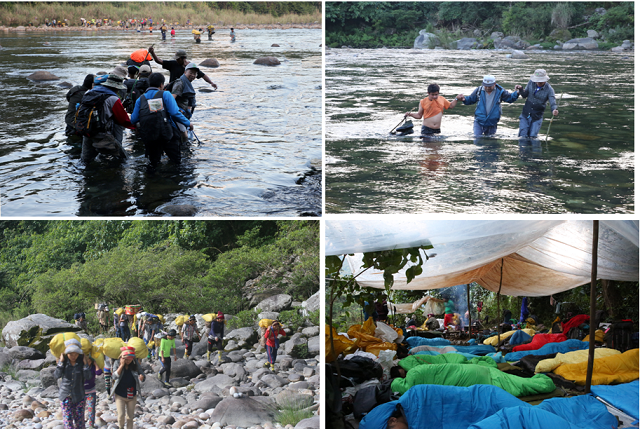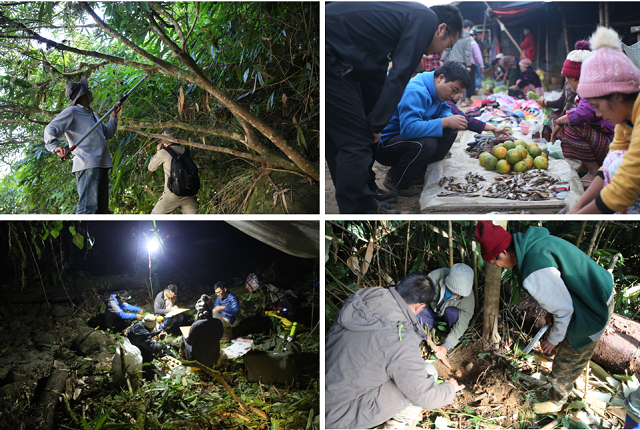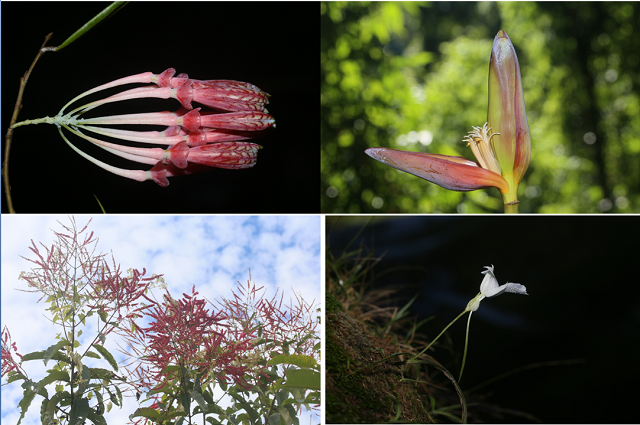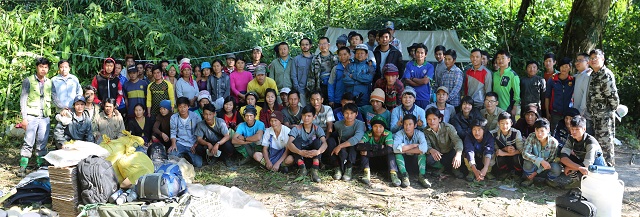At the invitation of Natural Resources and Environmental Conservation of Myanmar, the joint field expedition was accomplished by 21 researchers from Xishuangbanna Tropical Botanical Garden (XTBG), Institute of Botany, Institute of Zoology, and Myanmar partner institutions.
Under very severe and hard circumstances, the participants completed the field expedition efficiently.
The researchers collected about 3000 sheets of plant specimens, 1250 DNA materials of plants, 950 specimens and 271 DNA materials of fish. They collected some living materials and taken colored pictures. They also set 80 infrared cameras in the dense forest.
The field researchers mainly collected research materials of plants in families of Orchidaceae, Lauraceae, Zingiberaceae, Annonaceae, Ericaceae, Piperaceae, Moraceae, Rubiaceae, and Begoniaceae. These families were studied especially carefully.
It’s expected that 5 new plant species and 3 new aquatic animals will be published after this joint field expedition.
The joint investigation was supported by the CAS-SEABRI, an international scientific research and education organization affiliated directly to the Chinese Academy of Sciences (CAS) and managed by the Xishuangbanna Tropical Botanical Garden (XTBG).
Myanmar is one of the countries with richest and most complex plant diversity in the world. There are ca.20 thousand higher plants. However, the investigation of plant biodiversity in the region is very limited.
The CAS-SEABRI has continuously carried out 6 large-scale field investigations in Myanmar, aiming to make a significant contribution to biodiversity conservation in Southeast Asia.

Researchers work in adverse circumstances.

Researchers work in adverse circumstances.

Some photos taken in north Myanmar.

Field workers pose a group photo.




